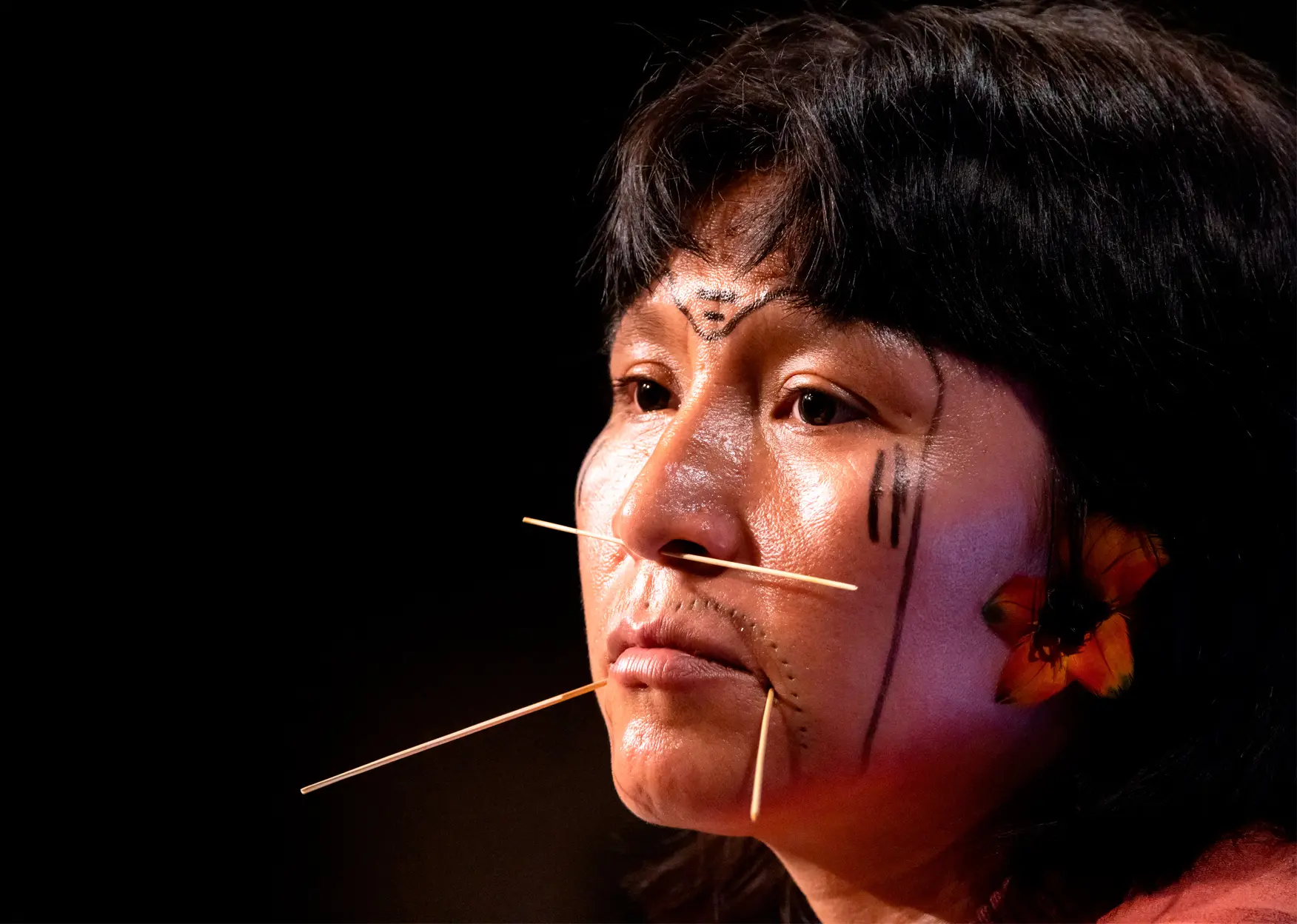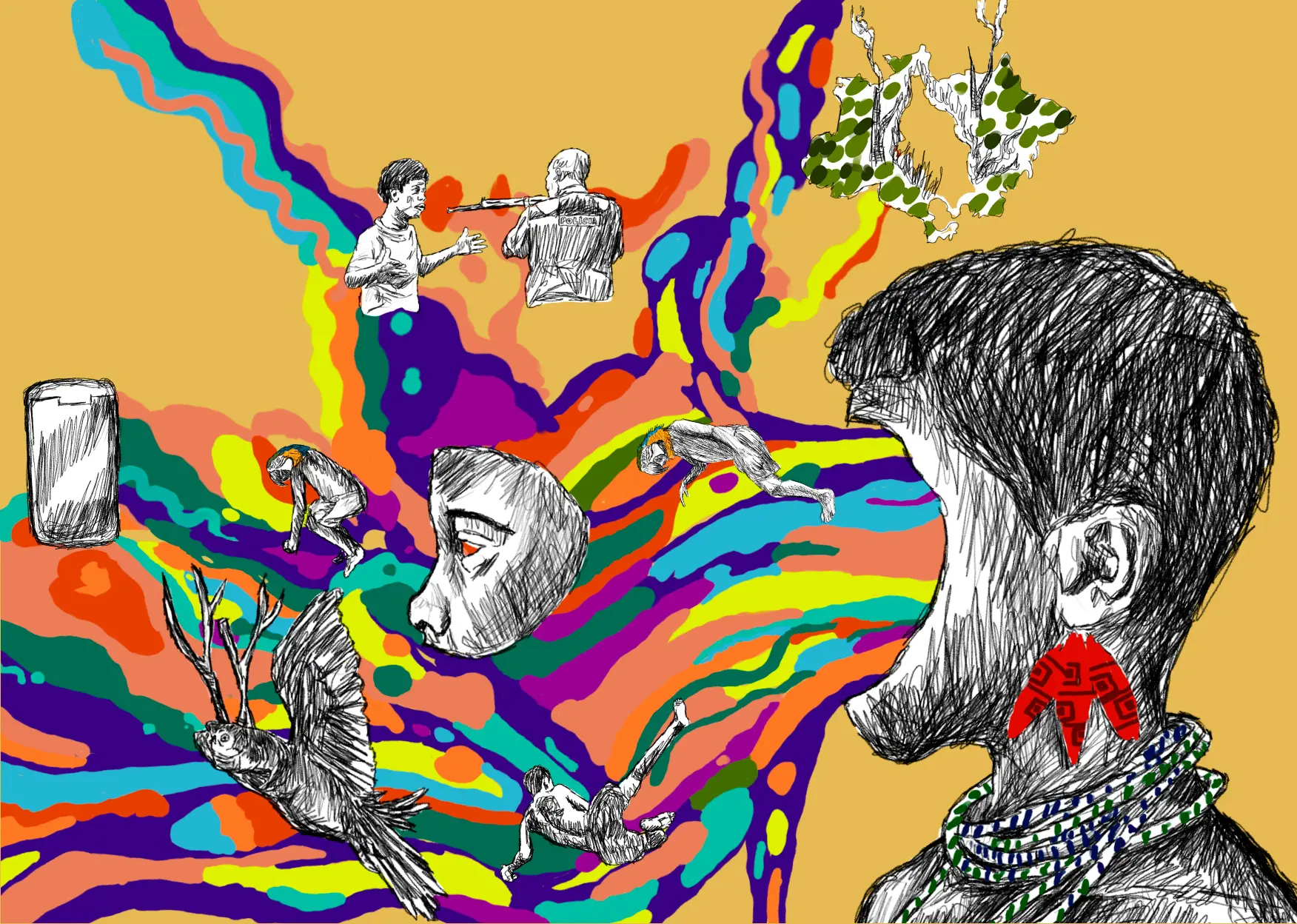When six thousand indigenous people camped recently in the federal capital of Brasilia, the buildings that long represented the old political and economic powers changed color. This was done literally with light projections on the National Congress, but there were also hopes that the Terra Livre encampment can also help to change the tone of national politics.
Compared to the past, they face a stronger opposition in the form of a “ruralista” caucus that now claims 300 out of 513 deputies and 47 out of the 81 senators, but the indigenous movement is also ever more organized, resilient and resistant. It is no longer possible to ignore their cause, even if political adversaries try to keep them invisible or destroy them.
The Terra Livre encampment is the main annual meeting of indigenous peoples in Brazil. This year it took place from April 24th to 28th and sought to demonstrate that national politics has started to resemble an indigenous village. The concept of “aldear”, which means “turning into an indigenous village” was raised last year by Sonia Guajajara, who is now minister of Indigenous Peoples, to illustrate the necessity to enter into and transform spheres of power.
This is becoming fact. Indigenous are now represented in federal institutions like never before. Besides the ministry, the president of Brazil’s federal agency of Indigenous affairs (Funai) is held by indigenous lawyer Joenia Wapichana; the head of the Special Office of Indigenous Health is an indigenous leader, Ricardo Weibe Tapeba; and the representative of the Cocar (Headdress) Caucus in the lower chamber is Célia Xakriabá.
The indigenous presence in politics may still be small but in historical terms, it is unprecedentedly large. From “aldear” came other words and expressions, projected in big letters in the towers of the National Congress: femalize, indigenize, jaguarize. These are not just evocative, creative verbs, they are statements of intent: conflicts in the chambers of power are imminent.
Similar to village rituals, the slogans serve as war cries: “The Indigenous future is today”, “No demarcation, no democracy”, “No more Brazil without us”, “Not a drop of blood more”, “The Brazilian cocar [headdress] came before the Brazilian crown”. This language, say its advocates, is here to stay. The words, like the indigenous physical presence, will not leave the political arena.
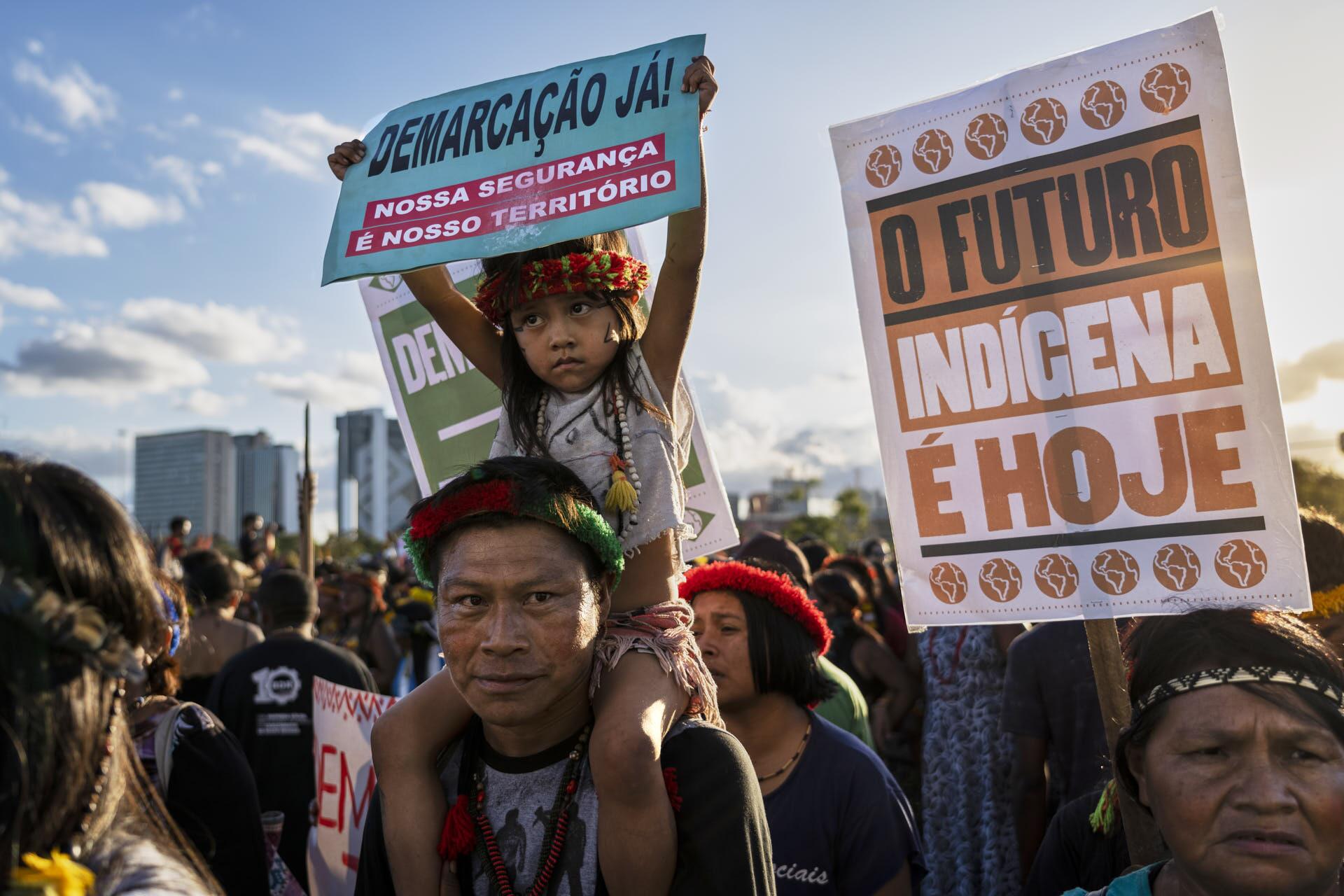
Indigenous peoples’ march that depart from Terra Livre encampment towards the National Congress, in Brasilia, with posters that briefs the indigenous cause. Wednesday afternoon (4/24), indigenous peoples declared a climate emergency. Photo: Fernando Martinho/Sumaúma
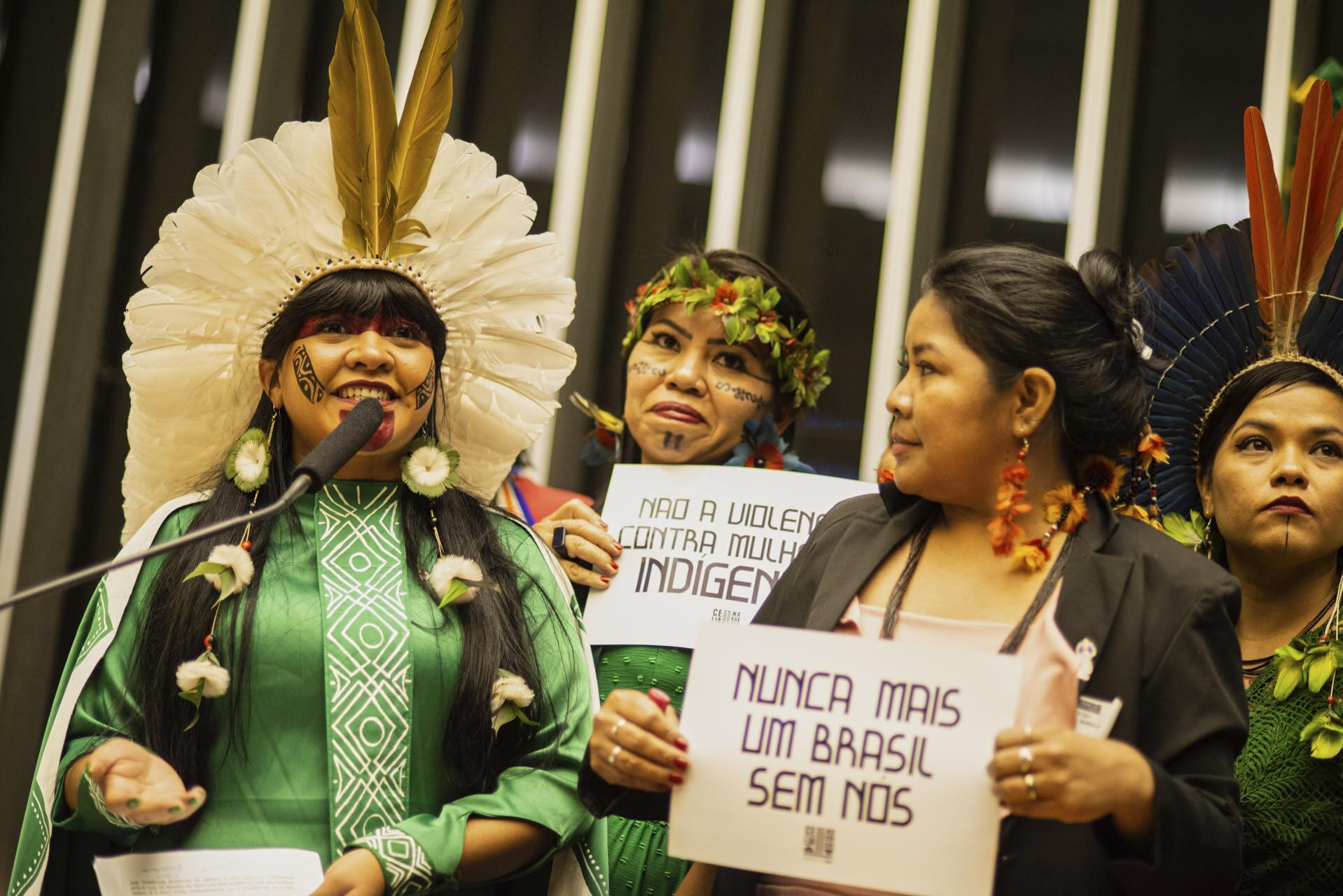
Federal deputy Célia Xakriabá speaks at the 19th Terra Livre encampment. Photo: Matheus Alves/Sumaúma
“Our boundary is timeless. Our boundary is ancestral. We might not have been in the National Congress for long, but we have been in Brazil for much longer.”
Federal Deputy Célia Xakriabá (PSOL-MG), the leading figure of the Cocar (Headdress) Caucus in the Chamber of Deputies, provides historical context during a session of the Terra Livre encampment in Brasilia.
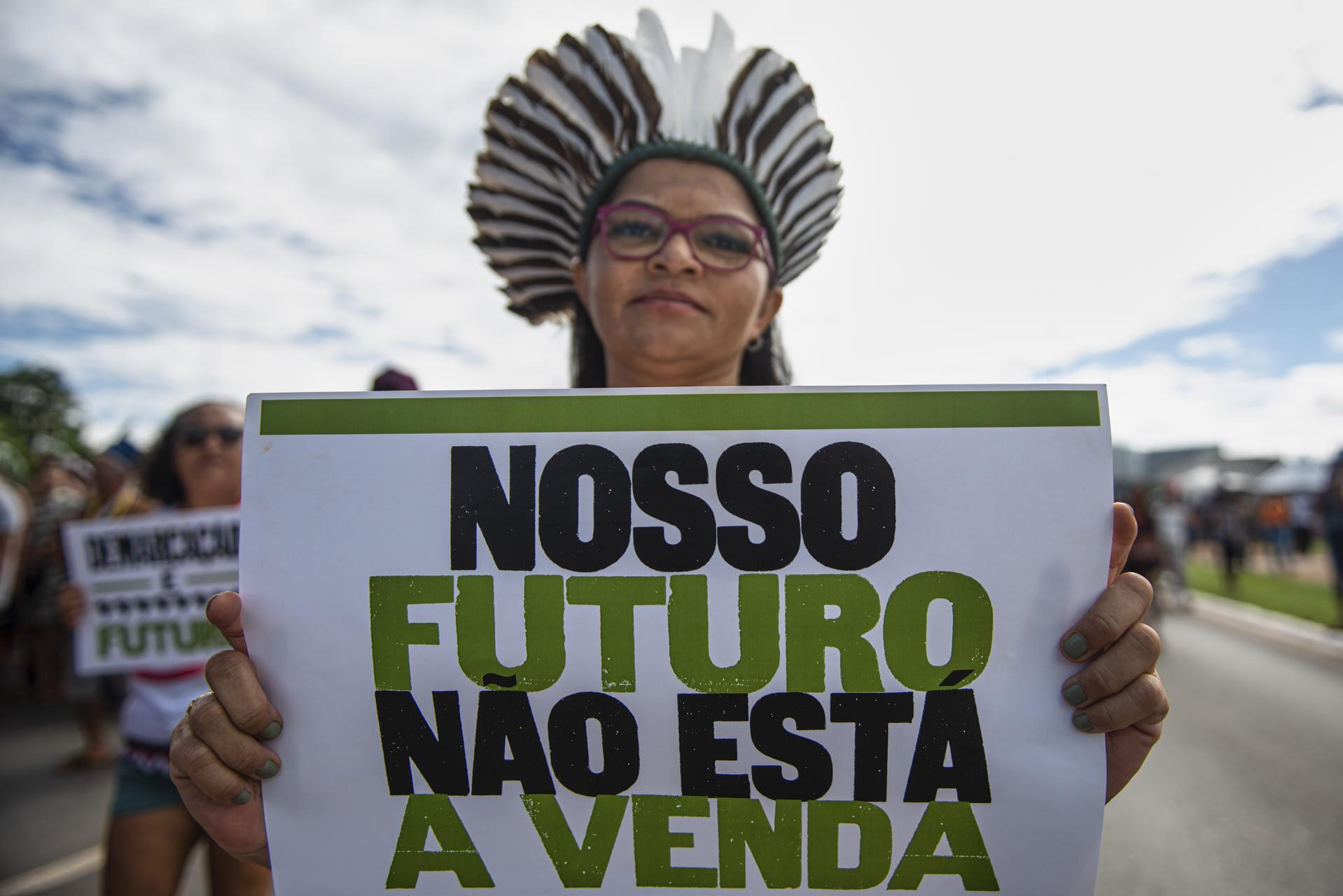
During a march from Terra Livre encampment towards Congress, a woman holds a placard protesting proposed laws that threatens indigenous rights. Photo: Fernando Martinho/Sumaúma
“You ought to defend the lands so that miners do not invade them. I see myself as an uncle, a grandpa to you all. I participated in Lula’s inauguration as president. Now I want to ask the president to consolidate financial resources in service of indigenous peoples.”
Raoni Metuktire, one of the most prominent Brazilian indigenous leaders was present at the Terra Libre camp on the day Lula signed the demarcation of six indigenous territories. Raoni had walked beside Lula on the ramp up to the presidential palace during the latter’s inauguration, on January 1.
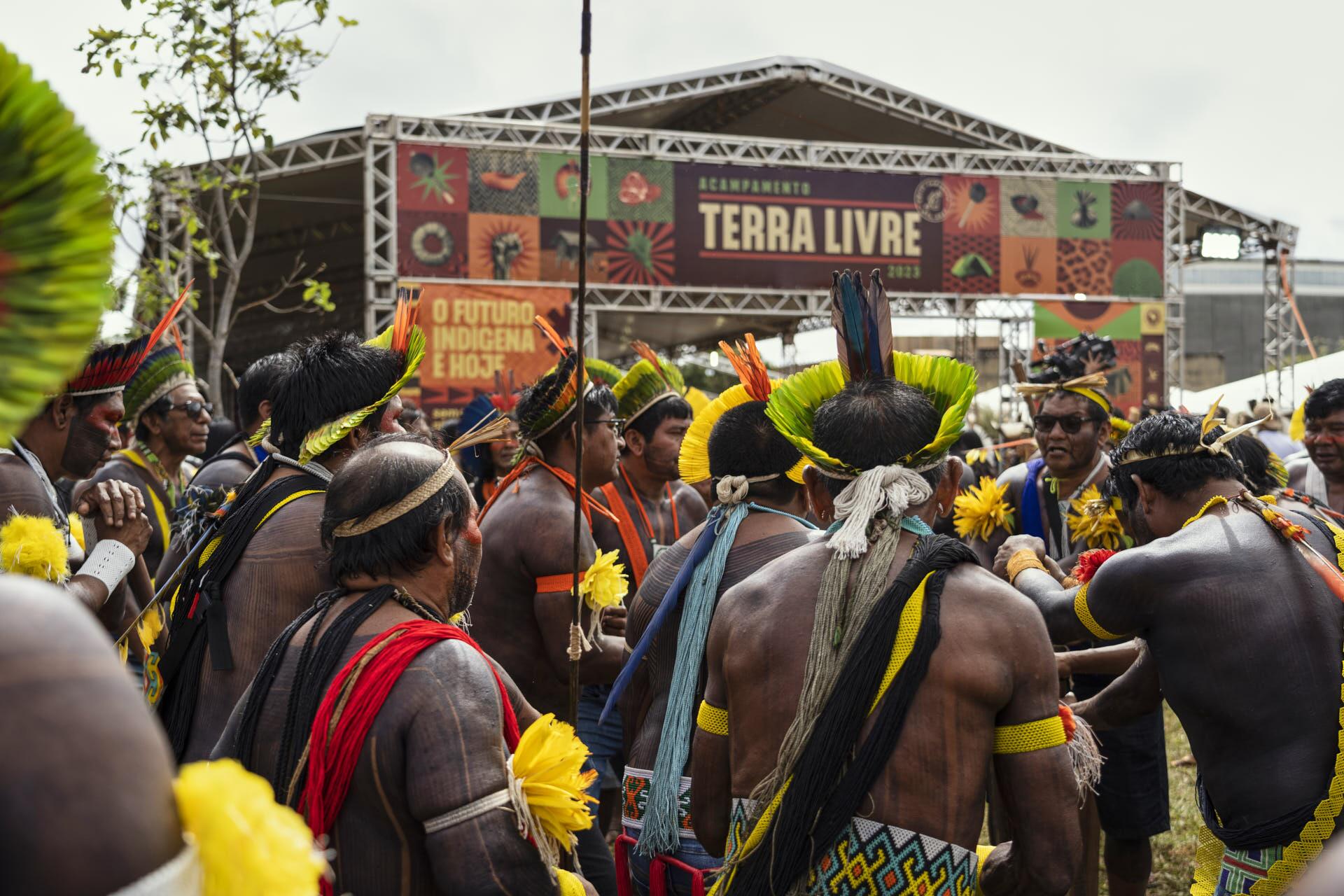
The opening of the 19th Terra Livre encampment in Brasilia. The theme was “The Indigenous future is today. No demarcation, no democracy!” Photo: Fernando Martinho/Sumaúma
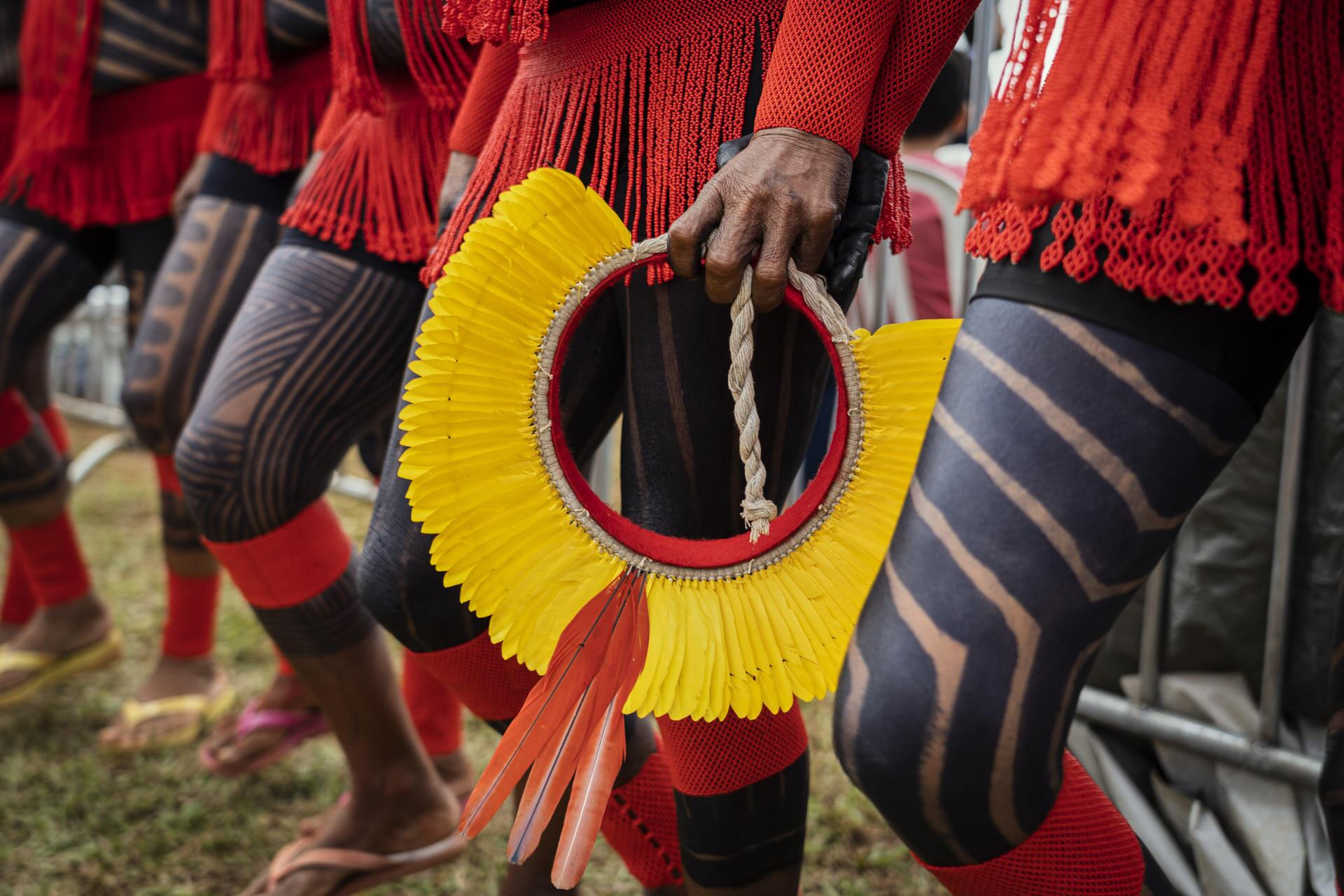
Indigenous paintings and headdresses during the 19th Terra Livre encampment, in Brasilia. Photo: Fernando Martinho/Sumaúma.
“Our cause is not only ours. The indigenous peoples’ cause is everyone’s business. Ours are the bodies that every day suffer the impacts and the violence of climate changes.”
Juliana Kerexu, the joint coordinator of the Alliance of Indigenous Peoples of Brazil, spoke at the Terra Livre encampment on the day of a visit by president Lula.
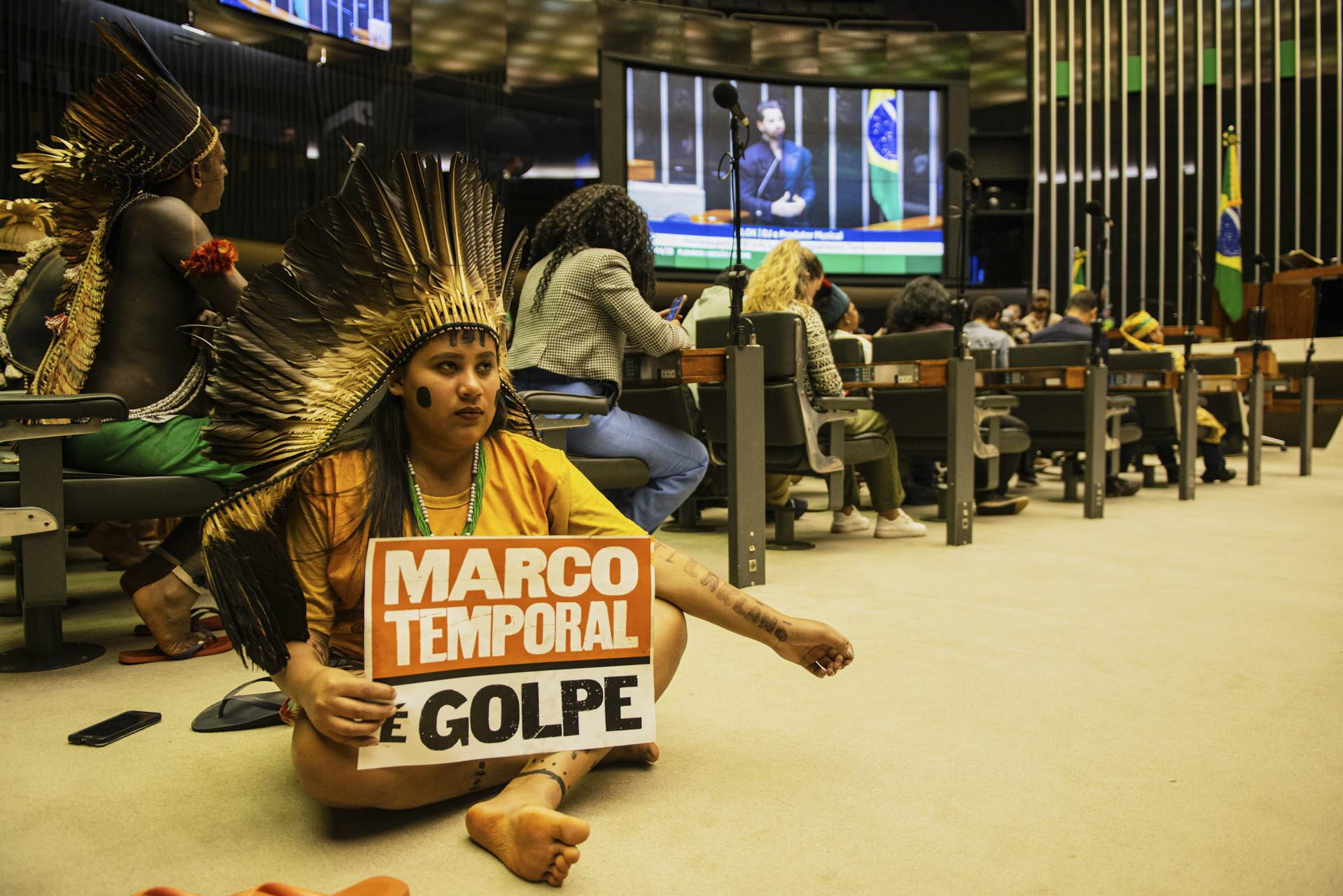
A Xokleng indigenous woman exhibits a poster declaring: “Time limits are a power grab”, referring to an attempt by political adversaries to set historic cut-off dates for the demarcation of indigenous land. Photo: Matheus Alves/Sumaúma
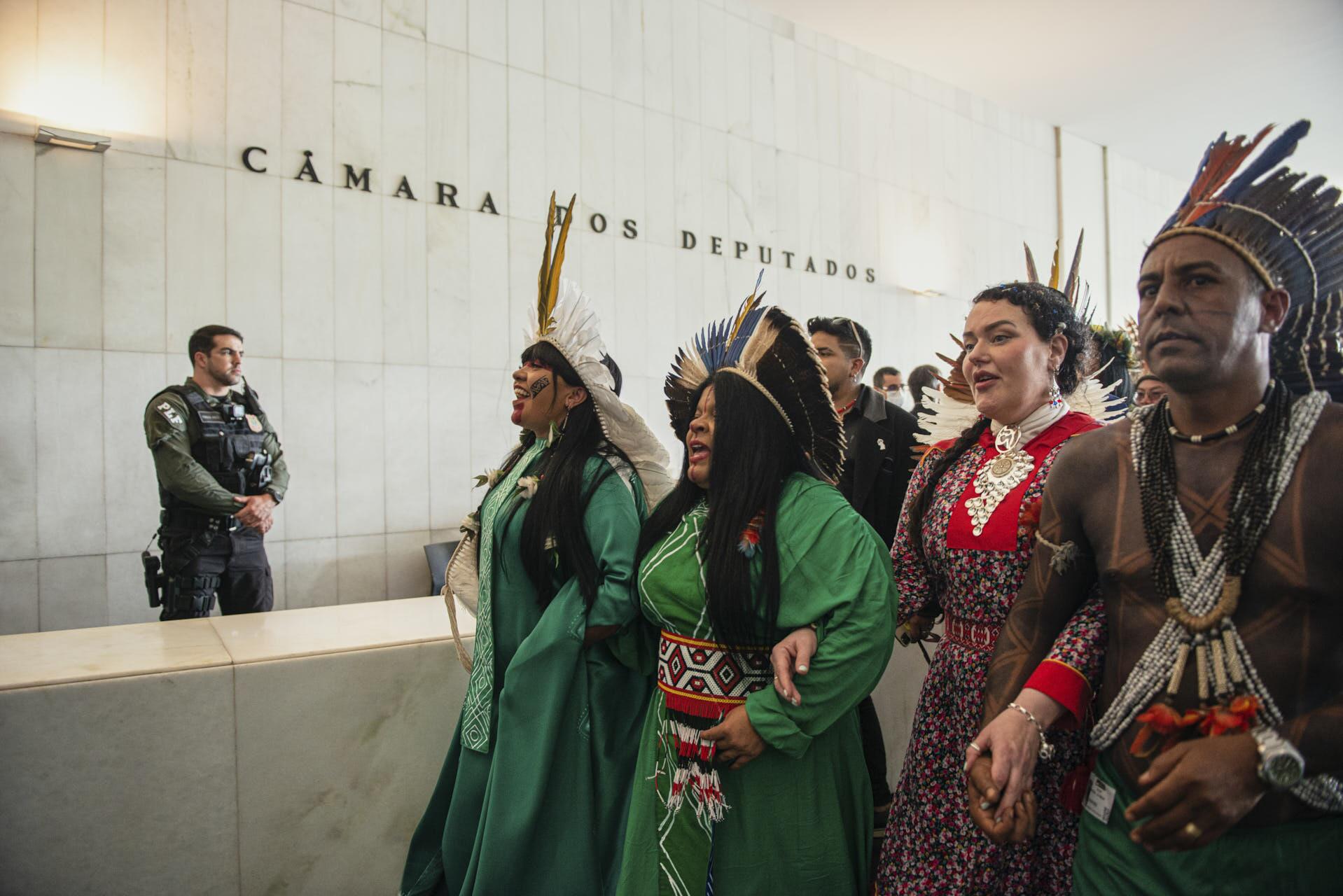
Minister Sonia Guajajara (center), marches and sings alongside federal deputy Célia Xakriabá, indigenous leader Marcos Xukuru and the visiting representative of the Sámi parliamentary group in Norway Silje Muotka, at the 19th edition of Terra Livre encampment. Photo: Matheus Alves/Sumaúma
“For over 500 years, we, indigenous peoples, have suffered the consequences of a colonial project that despised our science, knowledge, cultures, languages, beliefs and rituals. For the very first time in the history of this country, we have, within the governmental structure, a ministry of Indigenous Peoples.”
Sonia Guajajara, Indigenous Peoples Minister in the government of President Luiz Inácio Lula da Silva
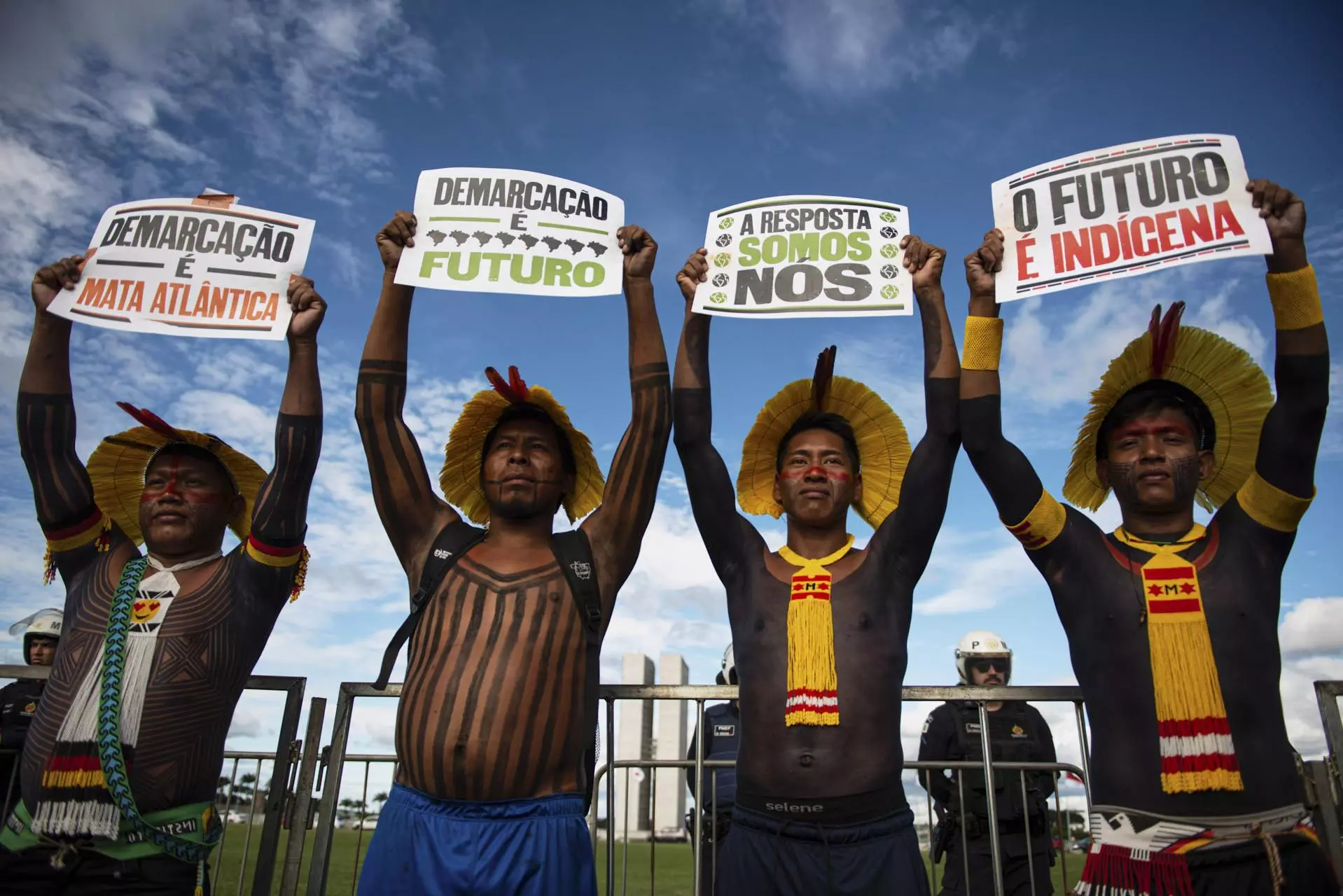
Indigenous campaigners display posters during the 1st march of Terra Livre encampment 2023. Photo: Matheus Alves/Sumaúma
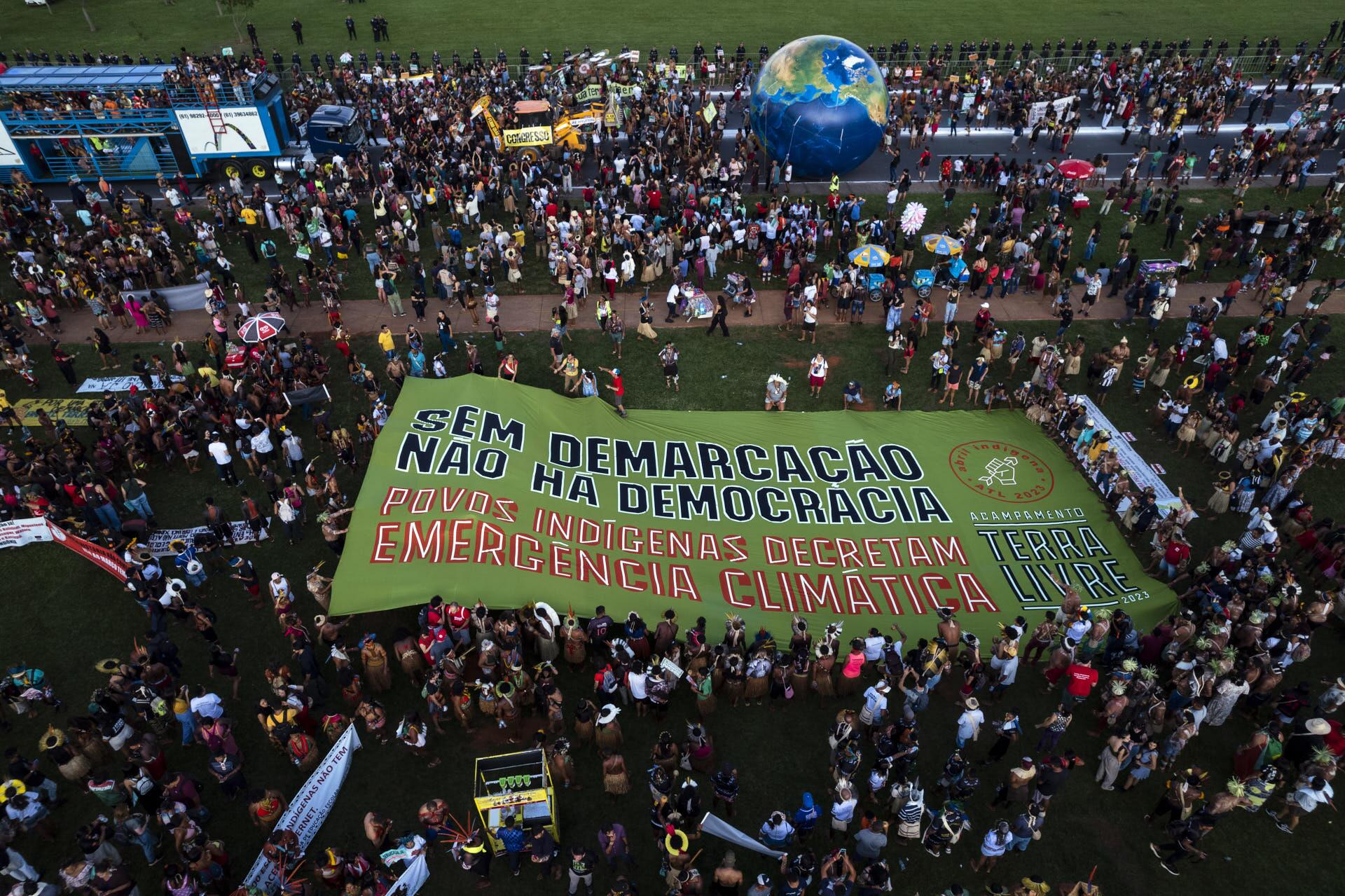
Aerial view of the indigenous peoples march, on April 26th, in the 19th edition of Terra Livre encampment, in Brasilia. Indigenous demonstrators hold posters with the slogans: “No demarcation, no democracy” and “Indigenous peoples declare a climate emergency. Photo: Fernando Martinho/Sumaúma
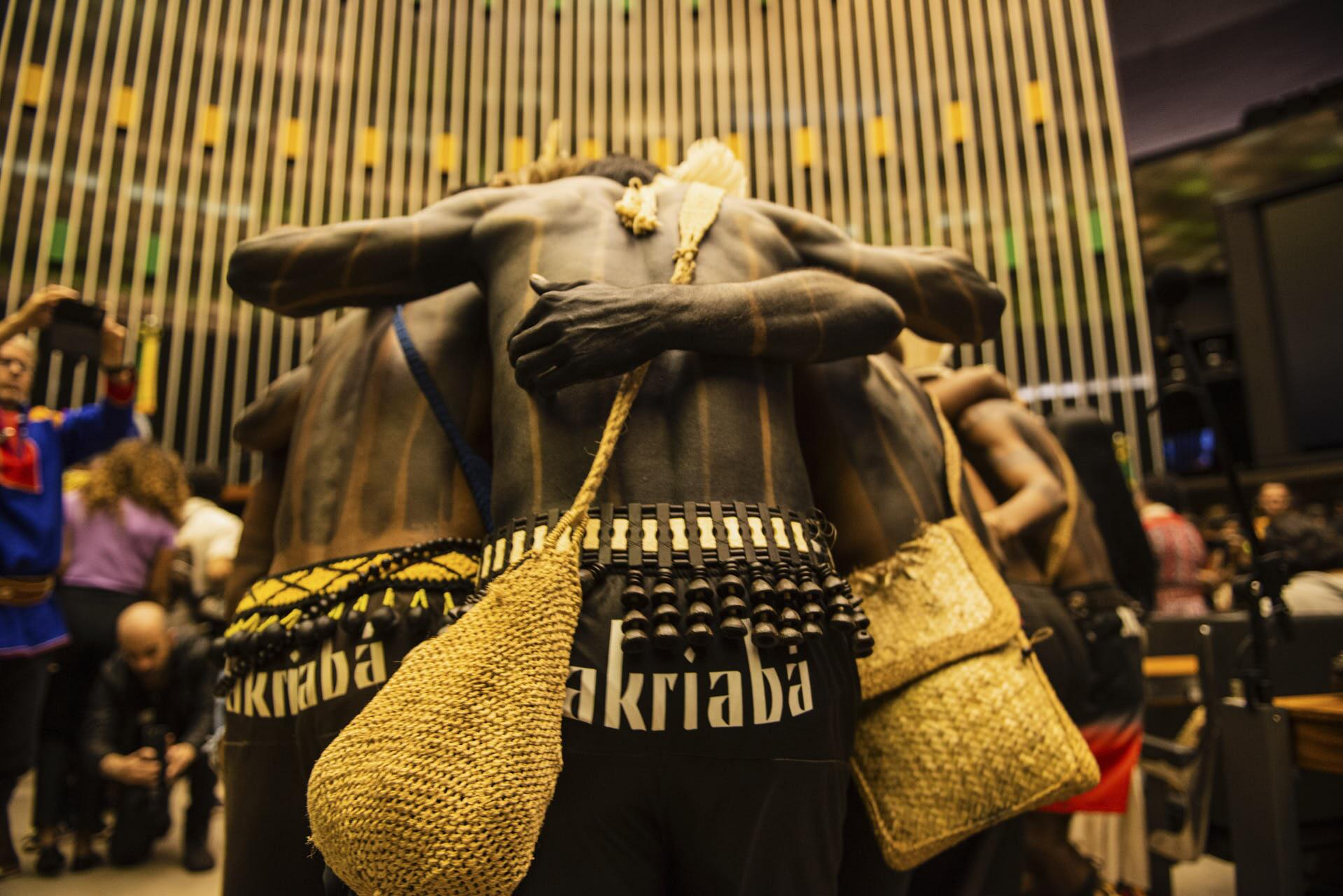
Xakriabá Youth sing during a session in Congress to declare the opening of the 19th edition of the Terra Livre encampment. Photo: Matheus Alves/Sumaúma
Spell check (Portuguese): Elvira Gago
Translation into Spanish: Meritxell Almarza
English translation: Ana Carolina Gasonato
Photography editing: Marcelo Aguilar, Mariana Greif and Pablo Albarenga

